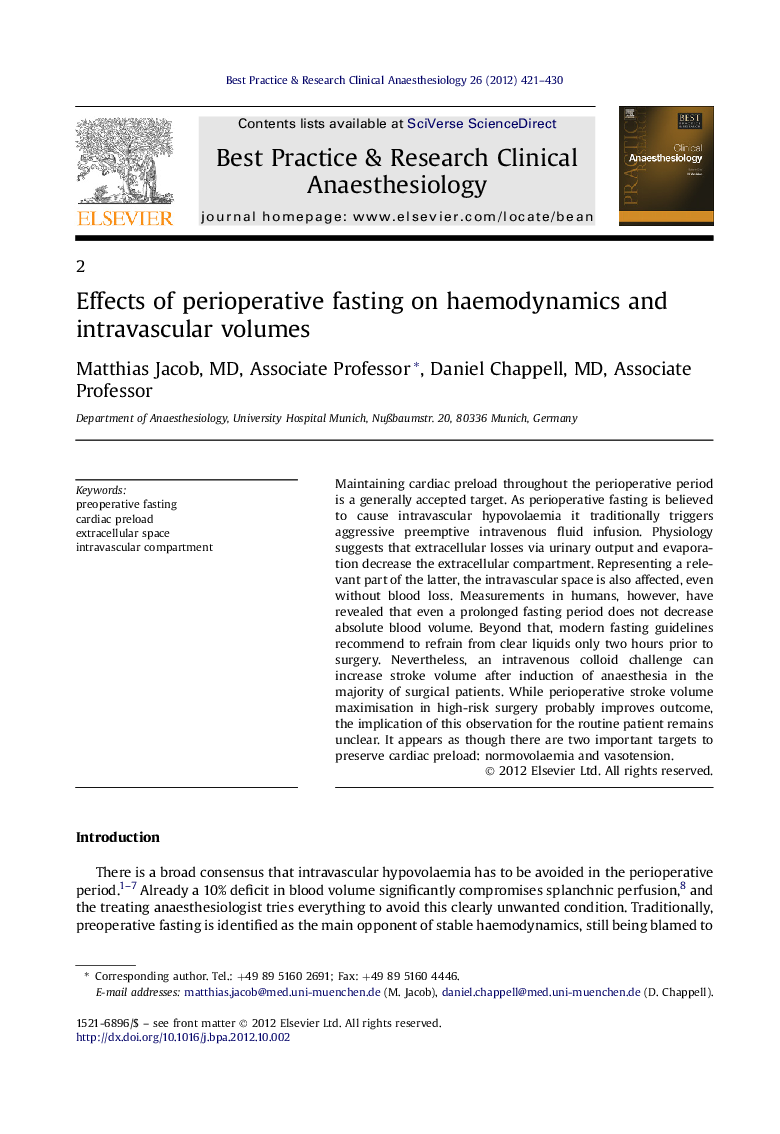| Article ID | Journal | Published Year | Pages | File Type |
|---|---|---|---|---|
| 2748478 | Best Practice & Research Clinical Anaesthesiology | 2012 | 10 Pages |
Maintaining cardiac preload throughout the perioperative period is a generally accepted target. As perioperative fasting is believed to cause intravascular hypovolaemia it traditionally triggers aggressive preemptive intravenous fluid infusion. Physiology suggests that extracellular losses via urinary output and evaporation decrease the extracellular compartment. Representing a relevant part of the latter, the intravascular space is also affected, even without blood loss. Measurements in humans, however, have revealed that even a prolonged fasting period does not decrease absolute blood volume. Beyond that, modern fasting guidelines recommend to refrain from clear liquids only two hours prior to surgery. Nevertheless, an intravenous colloid challenge can increase stroke volume after induction of anaesthesia in the majority of surgical patients. While perioperative stroke volume maximisation in high-risk surgery probably improves outcome, the implication of this observation for the routine patient remains unclear. It appears as though there are two important targets to preserve cardiac preload: normovolaemia and vasotension.
